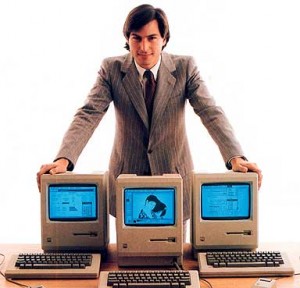Seth Godin’s blog provides fun and inspirational topics. It enriches you with skills and ideas of how to improve your competitive advantages, as well as providing one with successful tools and knowledge to succeed in the competitive business market.
Seth has a rich background in marketing.
He founded Yoyodyne , one of the first internet based direct marketing companies, that was sold to Yahoo in 1998 for $30,000,000.
Seth is also known for his use of the term “permission marketing” – marketing in which the marketers receive permission before the customer purchases the product.
He supports a friendly marketing approach rather than an aggressive approach.
All his experiences and academic knowledge have proven him to be one of the biggest business Gurus out there, therefore it is worthwhile to check his blog to get some ideas and motivation.
Citation: Godin, Seth. “Seth Godin’s blog” <http://sethgodin.typepad.com/>



